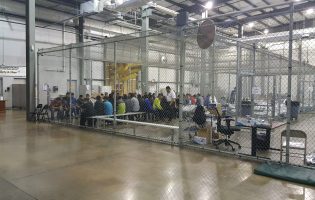
Bavaria First: How a provincial party is tearing Germany and Europe apart
When most Americans think about Germany, they really think about Bavaria. Lederhosen, beer, pretzels, beautiful mountain landscapes and the Disney-esque castle Neuschwanstein have little to do with any of the other 15 …
Recent Authors
AGI provides knowledge, insights, and networks as tools to solve the challenges ahead.
Support Our Work
Third Transatlantic Cyber Dialogue Stresses Value of New Information Sharing Venues
Ten German and ten American policymakers met at the American-German Institute in Washington, DC, on May 24 to continue work on cybersecurity proposals to strengthen the transatlantic relationship. The third …

Digital Propaganda Working Group Outcomes
The U.S. and German participants agreed on common principles, such as securing the free democratic order on both sides of the Atlantic, as well as stabilizing and shaping a common …

The Imprint of Trumpism: Exploring Conservative America
Any effort to understand change in complex societies like the U.S. or Germany is a challenge for the foreign observer. One is tempted to employ frameworks that may not fit …

Social Cohesion in the United States and Germany: Will Protectionism and Income Redistribution Be Helpful?
While the economy is booming, society is drifting apart. Social cohesion is showing cracks and political stability is in many places in danger. Partitioning is again becoming an issue. These …
Jeffrey Rathke Selected as New AGI President
Jeffrey Rathke is the President of the American-German Institute at the Johns Hopkins University in Washington, DC. Prior to joining AGI, Jeff was a senior fellow and deputy director of …

New Ideas for an Evolving Transatlantic Partnership
Foreign and Domestic Policy Recommendations During 2017-2018, the AGI project “A German-American Dialogue of the Next Generation: Global Responsibility, Joint Engagement” examined transatlantic challenges and new ideas for the German-American-European …







